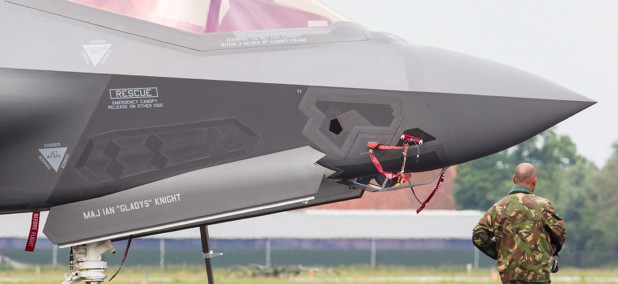The Netherlands has officially entered into a collaborative effort with the U.S. Air Force to participate in its advanced combat aircraft program, aimed at enhancing the country’s fleet of F-35 fighter jets. On March 7, 2024, the Dutch Defense Ministry signed a letter of intent to join the initiative, which focuses on developing Collaborative Combat Aircraft (CCA).
Strengthening Defense Partnerships
During a defense industry event at the Dutch embassy, Gijs Tuinman, Dutch State Secretary for Defense, highlighted the significance of this partnership, stating, “This is a unique point in time and it reinforces the partnership we have with the U.S.” He emphasized that integrating CCA technology into European operations could enhance regional security, particularly in light of ongoing global tensions.
The agreement not only grants the Netherlands access to the evolving CCA program but also allows for data sharing and input on operational requirements tailored for Europe. Tuinman noted that the Netherlands aims to maintain a balanced mix of manned, unmanned, and attritable systems within its defense strategy.
“The Netherlands acts as a jumping pad for the United States into Europe,” Tuinman remarked, reinforcing the importance of transatlantic relations. He acknowledged the need for European nations, including the Netherlands, to increase their defense spending in response to shifting global security dynamics.
Advancing Drone Technology
In conjunction with the CCA program, the Netherlands also signed an agreement with General Atomics to develop new small unmanned aircraft systems designed for intelligence, surveillance, and reconnaissance (ISR). These systems are expected to be cost-effective and capable of carrying diverse payloads, addressing gaps in the current drone capabilities.
Tuinman pointed out that the drone industry currently lacks systems that can effectively penetrate anti-access/area-denial environments, which are increasingly prevalent in modern warfare. The partnership with General Atomics will involve collaboration with VDL Defentec, a Netherlands-based company, to engineer and manufacture these innovative systems.
The collaboration comes against the backdrop of heightened security threats in Europe, particularly due to ongoing military actions in Ukraine. Tuinman expressed concerns over recent incidents, including disruptions caused by drones during a Dutch military exercise in Poland. “Putin is testing us in every possible way,” he stated, drawing attention to the hybrid threats facing European nations.
During the embassy event, Birgitta Tazelaar, the Dutch ambassador to the U.S., emphasized the importance of bolstering defense industries on both sides of the Atlantic. She noted that increased defense spending would not only enhance European capabilities but also foster stronger collaboration with American partners.
“Our adversaries are making similar strides, and it is essential for us to maintain our strategic advantage by integrating our industrial bases,” Tazelaar remarked, highlighting the necessity of collaborative efforts in the face of global challenges.
This partnership marks a significant step for the Netherlands as it seeks to enhance its military capabilities while reinforcing its longstanding relationship with the United States. As European nations confront evolving security threats, initiatives like this are poised to play a crucial role in shaping the future of defense in the region.
